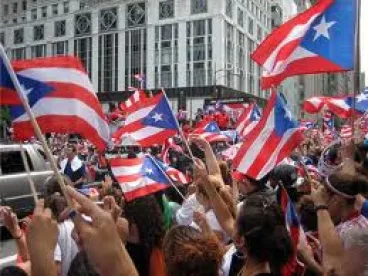Citing factors such as inflation, population deceleration, migration, and the long-term economic effects of Hurricane Maria and the COVID-19 pandemic, Governor Pedro Pierluisi has signed into law the “Puerto Rico Minimum Wage Act.” The new law supersedes the lower federal minimum wage beginning 2022 and creates the “Minimum Wage Review Board” to periodically review and potentially increase minimum wage every two years.
The new law also establishes Puerto Rico’s public policy that no full-time worker should live below the poverty level and that all workers should earn enough to cover their basic living expenses. This is the first time in more than a decade Puerto Rico has increased its minimum wage. The current minimum is $7.25 an hour.
State Minimum Wage
Puerto Rico’s minimum wage will automatically increase to $8.50 per hour on January 1, 2022, and to $9.50 per hour on July 1, 2023, for all employees covered by the Fair Labor Standards Act. The minimum wage is scheduled to increase to $10.50 per hour on July 1, 2024, unless the new Minimum Wage Review Board provides otherwise.
Exceptions to coverage include agricultural workers, all government and municipal employees, judicial and legislative branch employees, as well as “administrators,” “professionals,” and “executives,” as defined by Regulation 13 of the Puerto Rico Minimum Wage Board. Employees covered by a collective bargaining agreement that provides for higher wages than those set by the law or by Decree (described below) will also be excepted from coverage. Those receiving tips will be entitled to the federal minimum wage that, added to their tips, must reach the Puerto Rico minimum wage, established by either law or Decree.
Minimum Wage Review Board
The law creates the Puerto Rico Minimum Wage Review Board, part of the Puerto Rico Department of Labor. Headed by the Puerto Rico Secretary of Labor, the Board will be comprised of six additional members: two employee sector representatives; two employer sector representatives; one economist; and one labor relations expert. All members must be approved by the Senate after their appointment by the governor. Employee and employer representatives will serve for fixed three-year terms, for no more than three terms, and the economist and labor relations expert will serve fixed five-year terms, for no more than three terms.
The Board must hold monthly meetings and issue yearly reports on employment conditions for each industry. Upon submission of the yearly report, the Board may approve mandatory Decrees to increase the minimum wage in accordance with conditions cited. Decrees will have the force of law and must be issued at least every two years, but not more than twice in a calendar year. No Decree can mandate an increase of more than 25 percent of the previous state or federal minimum wage.
The Board also must approve Special Decrees for agricultural workers and tipped employees. It may approve Special Mandatory Decrees for “administrators,” “professionals,” and “executives,” as defined by Regulation 13 of the Puerto Rico Minimum Wage Board.
Claims and Penalties
The law provides penalties of up to $5,000 per infraction for first-time offenders and up to $10,000 for repeat offenders, as well as automatic doubling of damages for unpaid wages. It also increased the statute of limitations to bring a claim from one year to five years from the termination date or filing of a judicial or extrajudicial claim and increased the claim period from three years to five years.




 />i
/>i
